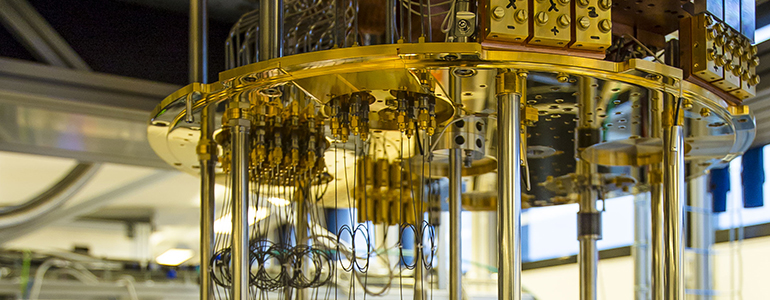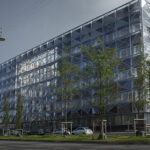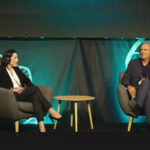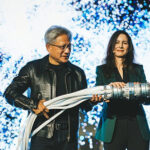Copenhagen Science City partner bets 10 million DKK on new quantum companies
University of Copenhagen pledges new venture financing to support quantum technology companies based on university research. This, along with better conditions for researchers, should allow university researchers better possibilities for launching start-ups in the field. Ultimately, the university hopes, that these companies will be of significant value to society.
Collaboration with new fund from established seed investors
The 10 million Danish Kroner will be funnelled through University of Copenhagen’s venture fund, UCPH Ventures, and the university is currently working on a deal to have the funding matched by private investors Pre Seed Venture and a coming Deep Tech Fund.
Express license for quantum patents
Together with this initiative, the University is establishing a standard express-licensing model for university spin-out companies. This should make it faster and easier to transfer technology to new companies. In addition, the researchers will get access to advisors with expertise in the market for quantum technology through the university’s technology transfer office.
Part of a national government initiative
The funding mechanism and the express license are just two of five University of Copenhagen quantum initiatives in connection with today’s announcement of a new government strategy for quantum technology. Taken together, the initiatives aim to support the development of new quantum technologies and start-ups based on the university’s 100 years of excellent quantum research.
Government quantum house in historic surroundings
In another initiative, the university has offered to house a new Governmental initiative; Quantum House Denmark in its historic Niels Bohr Institute buildings at Blegdamsvej in Copenhagen Science City. The house will offer state-of-the-art laboratory facilities in order to attract investors and new companies.
With the rapid development within quantum technology, it is crucial that we go beyond doing fundamental research. We need to involve ourselves in developing our discoveries into practical solutions for society. With the quantum initiatives, young entrepreneurs and talented researchers will have much better conditions and more resources to lift their innovative ideas and quantum technologies from the laboratories into society”: Henrik C. Wegener, Rector, University of Copenhagen
Quantum technologies on the rise
Quantum computers, quantum measuring instruments and quantum encryption. These are among the technologies that researchers from the University of Copenhagen are already developing and commercializing. Alone or together with world-leading companies. Physicists are at the leading edge, but mathematicians, nano scientists, chemistry researchers and computer scientists are all deeply involved in a thriving quantum community. University of Copenhagen’s newly appointed quantum coordinator and former department head of the Niels Bohr Institute, Jan W. Thomsen, states:
We are on the brink of a quantum technological revolution. With the initiatives, we want to ensure that Denmark stays at the forefront and remains ready to exploit the countless opportunities that quantum technology brings.”
Five quantum initiatives
With the five initiatives more University of Copenhagen students and researchers in the quantum field should be successful in creating innovative new quantum technologies, solutions and companies:
The five initiatives from University of Copenhagen are:
- Niels Bohr Institute’s premises on Blegdamsvej are made available to the government’s “Quantum House Denmark”.
- A quantum coordinator is appointed who can work for the research environments, the government and the rapidly growing commercial field.
- The University establishes more efficient technology transfer with a standard express license for spin-outs.
- Business development within quantum technology is strengthened.
- A new investment collaboration between the university’s investment arm, UCPH Ventures, and the Pre-Seed Venture Deep Tech Fund will provide more venture capital.
A thriving quantum community within an 800 meter radius
University of Copenhagen has been a global centre for quantum research since 1921 when physicist Niels Bohr leveraged a Nobel Prize into funding for an institute bearing his name. More recently, several other initiatives have co-located in Copenhagen Science City in order to build on the districts’ thriving quantum community.
- NATO DIANA Quantum Centre.
- University of Copenhagen’s Novo Nordisk Foundation Quantum Computing Programme.
- The Quantum Foundry.
- A.P. Møller Foundation “Center for Educational Quantum Advantage”.
- Deep Tech Lab Quantum.
- University of Copenhagen MSc programme in Quantum Science.
The five new initiatives will be implemented in 2023 and the following years.
About Copenhagen Science City
Copenhagen Science City is a two square kilometre innovation district in the heart of the Danish capital. Here, University of Copenhagen, University Hospital Rigshospitalet and University College Copenhagen are working together with start-up community Symbion to create optimal conditions for students and researchers dreaming of starting a business, and for companies who need to develop, validate or test their products in collaboration with the knowledge institutions. Significant portions of the university’s research and training in science and health and medical sciences are located in the innovation district.




